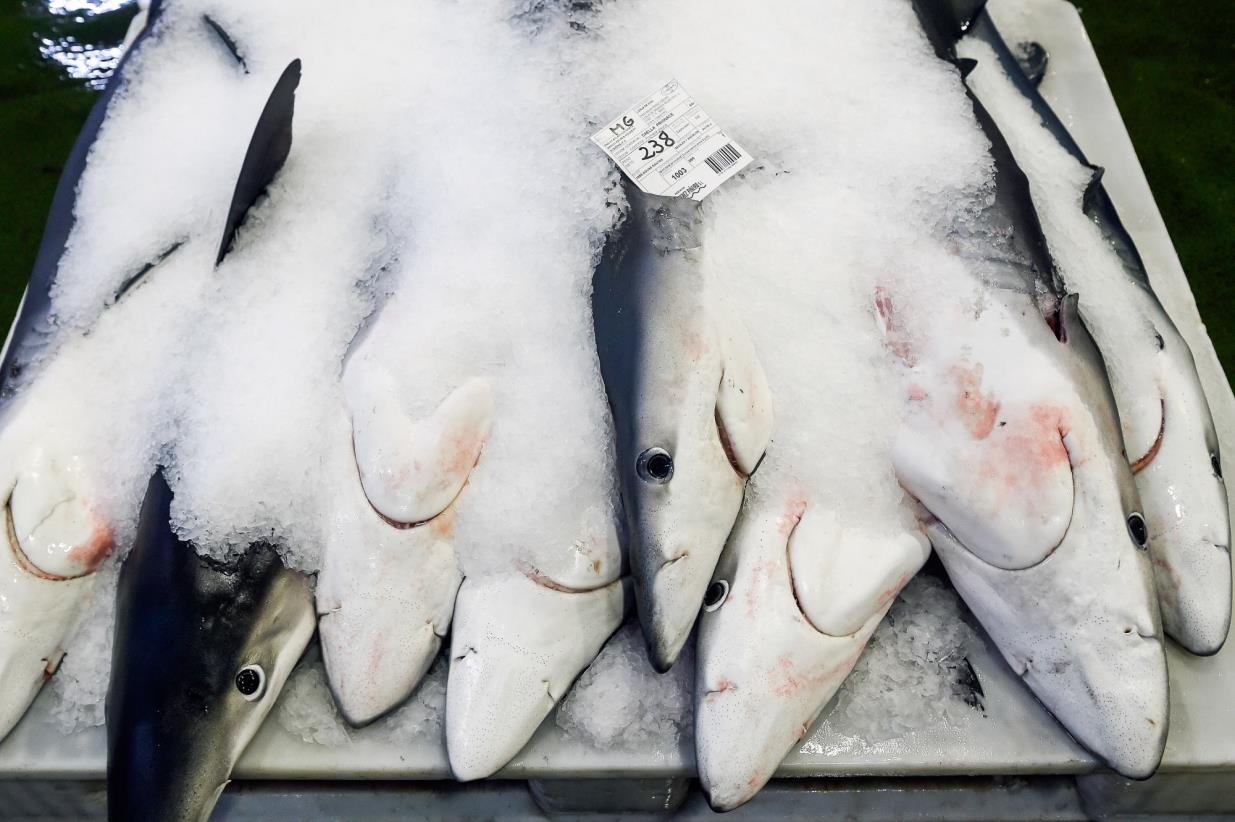The threat of extinction of sharks gathers delegates in WECAFC region for urgent talks

The WECAFC delegates from member countries including, Bahamas, Barbados, Belize, Colombia, the European Union (Member Organization), Grenada, Honduras, Mexico, Nicaragua, Trinidad and Tobago, and the United States of America - and 9 partner organizations took part in the deliberations on the development of a Regional Plan of Action for the Conservation and Management of Sharks in the WECAFC Area.
It has been reported that over one-third of sharks are threatened with extinction globally and in the WECAFC waters which hosts 14% of the global number of shark species, relatively greater numbers are disproportionately threatened. This threat is due to overfishing as sharks are fished sometimes as target species, others as a bycatch that is either commercialized or used locally as food, and sometimes as unwanted and discarded bycatch. This raises concern for oceans’ biodiversity loss, health of aquatic ecosystems and the sustainability of fisheries for livelihoods, food and nutrition security, tourism and the overall ocean economy.
Yvette Diei Ouadi, Secretary of WECAFC, expressed, “This is absolutely unacceptable as it is inconsistent with the objective of WECAFC, which is to promote the effective conservation, management and development of the living marine resources in its area of competence. This is the rationale behind the firm dedication of the Commission to actions aiming at reversing this trend, with the establishment of the Joint working group supported by WECAFC, the Convention on International Trade in Endangered Species of Wild Fauna and Flora (CITES), the Central America Fisheries and Aquaculture Organization (OSPESCA), the Caribbean Regional Fisheries Mechanism (CRFM) and the Caribbean Fishery Management Council (CFMC) working group under the umbrella of which is being reviewed the Regional Plan of Action for the Conservation and Management of Sharks (RPOA) background document, as well as strengthening the collaborative ties with key partners in the region”.
The importance of the meeting and its outcome have been acknowledged by all delegates, as echoed by the Delegation of Trinidad and Tobago, one of the 10 top shark fishing countries in the region. There has been significant advancement in development of the RPOA-Sharks informed by a comprehensive review and consolidation of available information on the respective species, stock status, existing management and conservation measures, existing National Plan of Action for the Conservation and Management of Sharks (NPOA-sharks) RPOAs and The International Union for Conservation of Nature (IUCN)categorizations for sharks in the WECAFC Region, and ecological, fisheries, trade and other relevant data and information. The discussions were enriched with inputs from the Secretariat of the International Commission for the Conservation of Atlantic Tunas (ICCAT) pertaining to existing conservation and management measures of relevant species and Secretariat of the Convention on International Trade in Endangered Species of Wild Fauna and Flora (CITES).
Meanwhile, Camille Jean-Pierre Manel, Executive Secretary of ICCAT stated, “ICCAT was pleased to actively participate in this workshop through the contribution of the Secretariat and some of our shark experts. Although there are ongoing discussions on a formal cooperation framework between our two organizations, our participation expresses ICCAT's strong willingness to further cooperate with the WECAFC. We also strongly call the states of the region to join the ICCAT Convention, and further improve the data sharing and engagement on the management process, to enhance the knowledge on the tunas and tuna-like species/stocks and contribute to their sustainable exploitation in the Atlantic Ocean.”
In moving forward, a Task Force was established which would work to deliver the final RPOA. Its implementation, particularly in the Caribbean Small Island Developing States (SIDS), where shark is an integral component of the food system and livelihoods of local fisherfolk should contribute to bolstering food security in this region which continues to suffer economic downturns from the COVID pandemic, improve economic, social and environmental benefits from well managed shark fisheries.
Contact
Marquita Sugrim FAO National Communications Consultant 1-246-467 6241 [email protected]
